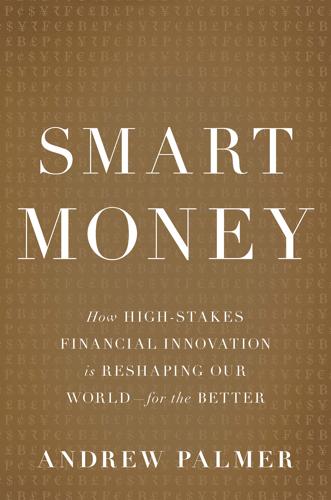
Smart Money: How High-Stakes Financial Innovation Is Reshaping Our WorldÑFor the Better
by
Andrew Palmer
Published 13 Apr 2015
To this financing mechanism, Sir Ronald added a venture-capital twist: by having an intermediary like Social Finance assist the social organization as it went along, a transaction like this could add management skills as well as money. The skeleton of a social-impact bond now existed on paper. A chance conversation with someone who pointed out the amount of data that already existed on prisoners steered the team at Social Finance to its first implementation: reducing rates of prisoner recidivism. So in 2010 Sir Ronald and others went to Britain’s Ministry of Justice to present the idea of a £12 million social-impact bond to fund rehabilitation programs for ex-prisoners at three prisons. As Sir Ronald tells it, the Labour justice minister at the time, Jack Straw, listened to the proposal and turned to one of his officials.
…
There is something suspicious about introducing the idea of financial incentives into state-funded social programs, let alone charitable funding. If Goldman Sachs and prisons are going to be mentioned in the same sentence, many think it ought to be for different reasons than a social-impact bond. Anders Lustgarten, a playwright, has already made social-impact bonds the villain of If You Don’t Let Us Dream, We Won’t Let You Sleep, a play that ran in London’s West End in early 2013. The play featured a thinly disguised variant of SIBs called “Unity bonds,” which become targets for speculators who position themselves to make money from rises in things like homelessness and drug addiction.
…
Flowers, 69, 81 Japan, banking crisis in, 75 Japan, financial innovation in, 27, 29, 39–40 Jha, Saumitra, 27 Jiménez-Martín, Sergi, 73 Job creation, young small firms and, 147–148 Joint-stock firms, 23 JPMorgan, 77, 169 Jump-to-default risk, 238 Käärmann, Kristo, 190 Kabbage, 218 Kahneman, Daniel, 47, 137 Kanjorski, Paul, 145 Kauffman Foundation, 158 Kennedy, John F., 32 Keys, Benjamin, 48 Kharroubi, Enisse, 79 Kickstarter, 172 King, Stephen, 99 Klein, David, 182 Krugman, Paul, xv Lahoud, Sal, 166 Lang, Luke, 153, 161–162 Laplanche, Renaud, 179, 184, 188, 190, 193–194, 196–197 Latency, 53 Law of large numbers, 17 Layering, 57 Left-digit bias, 46 Lehman Brothers, x, 44, 65 Lending direct, 84 marketplace, 184 payday, 200 relationship-based, 11, 151, 206–208 secured, xiv, 76 unsecured, 206 See also Loans; Peer-to-peer lending Lending Club, 172, 179–180, 182–184, 187, 189, 194–195, 197 Leonardo of Pisa (Fibonacci), 19 Lerner, Josh, 59 Lethal pandemic, risk-modeling for demographic profile, 230 exceedance-probability curve, 231–232, 232 figure 3 historical data, 228–229 infectiousness and virulence, 229–230 location of outbreak, 230–231 Leverage, 51, 70–71, 80, 186, 188 Leverage ratio, 76–77 Lewis, Michael, 57 Liber Abaci or Book of Calculation (Fibonacci), 19 LIBOR (London Interbank Offered Rate), 41 Liebman, Jeffrey, 98 Life expectancy government reaction to, 128–129 projections of, 124–127, 126 figure 2 ratio of young to older people, 127–128 Life-insurance policies, 142 Life-settlements industry, 142–143 Life table, 20 Limited liability, 212 Liquidity, 12–14, 39, 185–186 List, John, 109 The Little Book of Behavioral Investing (Montier), 156 Lo, Andrew, 113–115, 117–123 Loans low-documentation, 48–49 secured, 76 small business, 181, 216 student, 164, 166–167, 169–171, 182 syndicated, 41 Victory Loans, 28 See also Lending; Peer-to-Peer lending Logistic regression, 201 London, early fire insurance in, 16–17 London, Great Fire of, 16 London Interbank Offered Rate (LIBOR), 41 Long-Term Capital Management, 123 Longevity, betting on, 143–144 Loss aversion, 136 Lotteries, 212, 213 Low-documentation loans, 48–49 Lumni, 165, 168, 175 Lustgarten, Anders, 111 Lynn, Jeff, 160–161 Mack, John, 180 Mahwah, New Jersey, 52, 53 Marginal borrowers assessment of, 216–217 behavioral finance and, 208–214 industrialization of credit, 206 microfinance and, 203 savings schemes, 209–214 small businesses, 215–219 unsecured lending to, 206 Wonga, 203, 205, 208 Marginal borrowers (continued) ZestFinance, 199, 202, 205–206 Maritime piracy, solutions to, 151–152 Maritime trade, role of in history of finance, 3, 7–8, 14, 17, 23 Market makers, 15–16, 55 MarketInvoice, 195, 207, 217–218 Marketplace lending, 184 Markowitz, Harry, 118 Massachusetts, use of inflation-protected bonds in, 26 Massachusetts, use of social-impact bonds in, 98 Matching engine, 52 Maturity transformation, 12–13, 187–188, 193 McKinsey & Company, ix, 42 Mercator Advisory Group, 203 Merrill, Charles, 28 Merrill, Douglas, 199, 201 Merrill Lynch, 28 Merton, Robert, 31, 113–114, 123–124, 129–132, 142, 145 Mian, Atif, 204 Michigan, University of, financial survey by, 134–135 Microfinance, 203 Micropayment model, 217 Microwave technology, 53 The Million Adventure, 213–214 Minsky, Hyman, 42 Minsky moment, 42 Mississippi scheme, 36 Mitchell, Justin, 166–167 Momentum Ignition, 57 Monaco, modeling risk of earthquake in, 227 Money, history of, 4–5 Money illusion, 73–74 Money laundering, 192 Money-market funds, 43, 44 Monkeys, Yale University study of loss aversion with, 136 Montier, James, 156–157 Moody, John, 24 Moody’s, 24, 235 Moore’s law, 114 Morgan Stanley, 188 Mortgage-backed securities, 49, 233 Mortgage credit by ZIP code, study of, 204 Mortgage debt, role of in 2007–2008 crisis, 69–70 Mortgage products, unsound, 36–37 Mortgage securitization, 47 Multisystemic therapy, 96 Munnell, Alicia, 129 Naked credit-default swaps, 143 Nature Biotechnology, on drug-development megafunds, 118 “Neglected Risks, Financial Innovation and Financial Fragility” (Gennaioli, Shleifer, and Vishny), 42 Network effects, 181 New York, skyscraper craze in, 74–75 New York City, prisoner-rehabilitation program in, 108 New York Stock Exchange (NYSE), 31, 52, 53, 61, 64 New York Times, Merrill Lynch ad in, 28 Noncorrelated assets, 122 Nonprofits, growth of in United States, 105–106 Northern Rock, x NYMEX, 60 NYSE Euronext, 52 NYSE (New York Stock Exchange), 31, 52, 53, 61, 64 OECD (Organization for Economic Co-operation and Development), 128, 147 Oldfield, Sean, 67–68, 80–84 OnDeck, 216–218 One Service, 94–95, 105, 112 Operating expense ratio, 188–189 Options, 15, 124 Order-to-trade ratios, 63 Oregon, interest in income-share agreements, 172, 176 Organization for Economic Co-operation and Development (OECD), 128, 147 Overtrading, 24 Packard, Norman, 60 Pandit, Vikram, 184 Park, Sun Young, 233 Partnership mortgage, 81 Pasion, 11 Pave, 166–168, 173, 175, 182 Payday lending Consumer Financial Protection Bureau, survey on, 200 information on applicants, acquisition of, 202 underwriting of, 201 PayPal, 219 Peak child, 127 Peak risk, 228 Peer-to-peer lending advantages of, 187–189 auction system, 195 big investors in, 183 borrowers, assessment of, 197 in Britain, 181 commercial mortgages, 181 CommonBond, 182, 184, 197 consumer credit, 181 diversification, 196 explained, 180 Funding Circle, 181–182, 189, 197 investors in, 195 Lending Club, 179–180, 182–184, 187, 189, 194–195, 197 network effects, 181 ordinary savers and, 184 Prosper, 181, 187, 195 RateSetter, 181, 187, 196 Relendex, 181 risk management, 195–197 securitization, 183–184, 196 Peer-to-peer lending (continued) small business loans, 181 SoFi, 184 student loans, 182 Zopa, 181, 187, 188, 195 Pensions, cost of, 125–126 Perry, Rick, 142–143 Peterborough, England, social-impact bond pilot in, 90–92, 94–95, 104–105, 112 Petri, Tom, 172 Pharmaceuticals, decline of investment in, 114–115 Piracy Reporting Centre, International Maritime Bureau, 151 Polese, Kim, 210 Poor, Henry Varnum, 24 “Portfolio Selection” (Markowitz), 118 Prediction Company, 60–61 Preferred shares, 25 Prepaid cards, 203 Present value of cash flows, 19 Prime borrowers, 197 Prince, Chuck, 50–51, 62 Principal-agent problem, 8 Prisoner rehabilitation programs, 90–91, 94–95, 98, 108, 112 Private-equity firms, 69, 85, 91, 105, 107 Projection bias, 72–73 Property banking crises and, xiv, 69 banking mistakes involving, 75–80 behavioral biases and, 72–75 dangerous characteristics of, 70–72 fresh thinking, need for, xvii, 80 investors’ systematic errors in, 74–75 perception of as safe investment, 76, 80 Prosper, 181, 187, 195 Provisioning funds, 187 Put options, 9, 82 Quants, 19, 63, 113 QuickBooks, 218 Quote stuffing, 57 Raffray, André-François, 144 Railways, affect of on finance, 23–25 Randomized control trials (RCTs), 101 Raphoen, Christoffel, 15–16 Raphoen, Jan, 15–16 RateSetter, 181, 187, 196 RCTs (randomized control trials), 101 Ready for Zero, 210–211 Rectangularization, 125, 126 figure 2 Regulation NMS, 61 Reinhart, Carmen, 35 Reinsurance, 224 Relendex, 181 Rentes viagères, 20 Repurchase “repo” transactions, 15, 185 Research-backed obligations, 119 Reserve Primary Fund, 44 Retirement, funding for anchoring effect, 137–138 annuities, 139 auto-enrollment in pension schemes, 135 auto-escalation, 135–136 conventional funding, 127–128 decumulation, 138–139 government reaction to increased longevity, 128–129 home equity, 139–140 life expectancy, projections of, 124–127, 126 figure 2 life insurance policies, cash-surrender value of, 142 personal retirement savings, 128–129, 132–133 replacement rate, 125 reverse mortgage, 140–142 savings cues, experiment with, 137 SmartNest, 129–131 Reverse mortgages, 140–142 Risk-adjusted returns, 118 Risk appetite, 116 Risk assessment, 24, 45, 77–78, 208 Risk aversion, 116, 215 Risk-based capital, 77 Risk-based pricing model, 176 Risk management, 55, 117–118, 123, 195–197 Risk Management Solutions, 222 Risk sharing, 8, 82 Risk-transfer instrument, 226 Risk weights, 77–78 Rogoff, Kenneth, 35 “The Role of Government in Education” (Friedman), 165 Roman Empire business corporation in, 7 financial crisis in, 36 forerunners of banks in, 11 maritime insurance in, 8 Rotating Savings and Credit Associations (ROSCAs), 209–210 Roulette wheel, use of in experiment on anchoring, 138 Royal Bank of Scotland, 186 Rubio, Marco, 172 Russia, mortgage market in, 67 S-curve, in diffusion of innovations, 45 Salmon, Felix, 155 Samurai bonds, 27 Satsuma Rebellion (1877), 27 Sauter, George, 58 Save to Win, 214 Savings-and-loan crisis in US (1990s), 30 Savings cues, experiment with, 137 Scared Straight social program, 101 Scholes, Myron, 31, 123–124 Science, Technology, and Industry Scoreboard of OECD, 147 Securities and Exchange Commission (SEC), 54, 56, 57, 58, 64 Securities markets, 14 Securitization, xi, 20, 37–38, 117–122, 183–184, 196, 236 Seedrs, 160–161 Sellaband, 159 Shared equity, 80–84 Shared-equity mortgage, 84 Shepard, Chris, xii–xiii Shiller, Robert, xv–xvi, 242 Shleifer, Andrei, 42, 44 Short termism, 58 SIBs. See Social-impact bonds Sims, Kath, 96 Single-family-home rental sector, 85 Single-family rental bond, 85 Skype, 190 Sleeping sickness, SIB program for elimination of, 103 Small businesses, as marginal borrowers, 215–219 Smart money, comparison of to dumb money, 155–158 SmartNest, 129–131, 211 Social Finance, 93, 97 Social-impact bonds (SIBs) benefits of, 91, 98–102, 104, 106 in Britain, 95–97 cost-effectiveness of, 100–102 data collection, 104 defined, 90 financial incentive, effect of on donors, 110–111 flexibility of, 105–106 Fresno, California, pilot program in, 103–104 G-8 task force on, 97 health-impact bonds, 103–104 individual givers, attraction of, 109 Massachusetts, prisoner-rehabilitation programs in, 98 New York City, prisoner-rehabilitation program in, 108 Peterborough, England, pilot in, 90–91, 94–95, 104–105, 107 philanthropists, role of, 108 possible abuses of, 111 purpose, 107 risk management in, 108 in United States, 98 Social-impact bonds (SIBs), uses for accomodation for homeless people, 96–97, 106–107 adoption of hard-to-place children, 97 cutting HIV infection rates in Swaziland, 103 early detection of health conditions, 102–104 elimination of sleeping sickness in Uganda, 103 improving educational outcomes for girls in India, 103 keeping troubled adolescents out of foster care, 96 prisoner rehabilitation programs, 90–91, 94–95, 98, 108 soldiers reentering civilian life, 102 Social insurance, 183 Social-investment bank, 92–93 Social Security, 128 Societas publicanorum, 7 SoFi, 184 South Sea Bubble, 36 South Sea Company, 36 S&P 500 index, 29, 40, 157 Spain, banking crisis in, xiv–xv, 69, 75 Spanish flu outbreak (1918–1919), 228, 230 Spear, Leeds & Kellogg, 61 St.
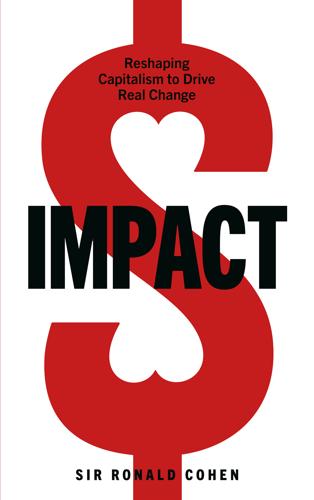
Impact: Reshaping Capitalism to Drive Real Change
by
Ronald Cohen
Published 1 Jul 2020
Viewing social challenges from the perspective of both delivery organizations and investors brought us to design the social impact bond (SIB) as a tool that helps social entrepreneurs accelerate social progress through the use of private investment. One of the first people to realize the importance of the SIB was Prince Charles. Shortly after the announcement of the Peterborough SIB, I received a handwritten letter from him, welcoming the arrival of our SIB and hailing its potential to fund charitable organizations that would tackle social issues close to his heart. Coming from such a dedicated philanthropist, his words provided great encouragement for our endeavor. The Social Impact Bond Social impact bonds involve three key players: outcome payers, social service providers (these are generally non-profit organizations, but they can also be purpose-driven businesses) and investors.
…
And today, thanks to some exciting breakthroughs, collaboration between foundations and investors, governments and non-profits enables philanthropy to adapt some of businesses’ best tools – and use them to make the biggest possible impact on society and the environment. Social Impact Bonds: The Catalyst Impact philanthropy, which takes many forms, offers a new alternative to conventional grant-making. The most prominent catalyst of these new approaches is the Social Impact Bond (SIB). When the first one was introduced in 2010, it turned conventional philanthropic wisdom on its head. The SIB demonstrated that it was possible to link the funding of a project to its impact on society.
…
Source Based on glossary of the GSG report: Catalysing an Impact Investment Ecosystem: A Policymaker’s Toolkit (January 2019) https://gsgii.org/reports/catalysing-an-impact-investment-ecosystem-a-policymakers-toolkit/ NOTES Introduction 1 https://www.ubs.com/global/en/wealth-management/uhnw/philanthropy/shaping-philanthropy.html and https://cpl.hks.harvard.edu/global-philanthropy-report-perspectives-global-financial-sector 2 https://www.academia.edu/32113970/IMPACT_INVESTMENT_THE_INVISIBLE_HEART_OF_MARKETS_Harnessing_the_ power_of_entrepreneurship_innovation_and_capital_for_ public_good 3 https://ssir.org/articles/entry/should_you_agitate_innovate_or_orchestrate Chapter 1: The Impact Revolution: Risk–Return–Impact 1 http://www.socialvalueuk.org/what-is-social-value/ 2 https://www.forbes.com/top-public-companies/list/ 3 http://www.bridgesfundmanagement.com/wp-content/uploads/2017/12/Bridges-Annual-Impact-Report-2017-v1-web.pdf and http://www.bridgesfundmanagement.com/bridges-annual-impact-report-2017/ 4 Bank accounts that have become separated from their owners for a certain length of time, and as a result lie dormant. 5 https://data.ncvo.org.uk/a/almanac15/assets/http://www.telegraph.co.uk/news/uknews/law-and-order/8110458/Three-in-four-offenders-stick-to-a-life-of-crime.html 6 https://data.ncvo.org.uk/a/almanac15/assets/ 7 http://data.foundationcenter.org/ 8 https://www.fnlondon.com/articles/why-sir-ronald-cohen-deserves-the-nobel-peace-prize-20170801 9 https://www.brookings.edu/research/impact-bonds-in-developing-countries-early-learnings-from-the-field/ and https://www.gov.uk/guidance/social-impact-bonds#uk-government-outcomes-funds-for-sibs 10 https://www.wired.com/2015/03/opinion-us-embassy-beijing-tweeted-clear-air/ 11 http://eprints.lse.ac.uk/65393/1/Assessing%20social%20impact%20assessment%20methods%20report%20-%20final.pdf 12 https://www.gov.uk/guidance/social-impact-bonds 13 http://www.globalvaluexchange.org/ 14 http://www.globalvaluexchange.org/valuations/8279e41d9e5e0bd8499f2da3 15 https://www.unpri.org/signatories/signatory-directory 16 https://www.blackrock.com/hk/en/insights/larry-fink-ceo-letter Chapter 2: The Age of Impact Entrepreneurship 1 This opening story was taken from Aryn Baker’s ‘Zipline’s Drones Are Saving Lives’, 31 May 2018 – http://time.com/longform/ziplines-drones-are-saving-lives/ 2 https://pando.com/2016/11/10/zipline/ 3 Ibid. 4 Ibid. 5 Ibid. 6 https://www.modernghana.com/news/899872/from-muhanga-to-the-rest-of-rwanda-how-zipline-is-providing.html 7 https://dronelife.com/2018/04/04/zipline-announces-new-drones/ 8 Ibid. 9 https://techcrunch.com/2019/05/17/ziplines-new-190-million-funding-means-its-the-newest-billion-dollar-contender-in-the-game-of-drones/ 10 Ibid. 11 Ibid. 12 https://www.mirror.co.uk/tech/hi-tech-specs-allow-blind-7756188 13 https://www.orcam.com/en/media/blind-veteran-reads-to-his-sons-using-orcams-technology/ 14 https://www.devdiscourse.com/article/international/473713-blind-and-visually-impaired-cast-their-ballots-unassisted-in-israel-election 15 https://www.ft.com/content/3d091920-0970-11e7-ac5a-903b21361b43 16 https://www.ft.com/content/b93ab27a-07e4-11e7-97d1-5e720a26771b 17 https://www.irishtimes.com/business/innovation/myeye-a-glimpse-of-the-future-for-visually-impaired-1.3380963 18 https://pressreleases.responsesource.com/news/96779/visually-impaired-student-is-achieving-independence-with-cutting-edge-artificial-vision/ 19 https://www.reuters.com/article/us-tech-orcam-valuation/israeli-visual-aid-company-orcam-valued-at-1-billion-idUSKCN1G326E 20 Ibid. 21 https://www.news.com.au/technology/gadgets/wearables/the-breakthrough-of-the-21st-century-how-this-product-changed-a-blind-womans-life/news-story/74f9881ed0f6f87a8797842bd982d1da 22 https://www.eastersealstech.com/2019/01/04/atu397-carlos-pereira-founder-and-ceo-of-livox/ 23 https://solve.mit.edu/challenges/teachers-and-educators/solutions/4677 24 https://www.weforum.org/agenda/2018/01/this-man-made-an-app-so-he-could-give-his-daughter-a-voice/ 25 Ibid. 26 https://www.youtube.com/watch?
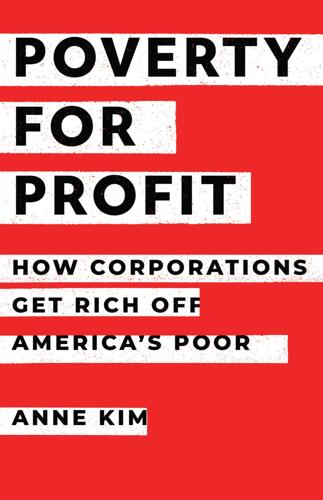
Poverty for Profit
by
Anne Kim
Anne Kim, “Mayor Ben McAdams of Salt Lake County: Financing Preschool with ‘Social Impact Bonds,’” Republic 3-0.com, March 2014, https://web.archive.org/web/20160320232709/http://republic3-0.com/qa-paying-for-success-in-salt-lake-county/. 7. Nathaniel Popper, “Success Metrics Questioned in School Program Funded by Goldman,” New York Times, November 3, 2015. 8. Ibid. 9. Allison E. Tse and Mildred E. Warner, “The Razor’s Edge: Social Impact Bonds and the Financialization of Early Childhood Services,” Journal of Urban Affairs 42, no. 6 (2020): 816–32, https://doi.org/10.1080/07352166.2018.1465347. 10. Nadine Pequeneza, “The Downside of Social Impact Bonds,” Stanford Social Innovation Review, May 13, 2019, https://ssir.org/articles/entry/the_downside_of_social_impact_bonds. 11.
…
The pursuit of profit is an uneasy fit for social policy, and it’s a motive powerful enough to override even the best of intentions. A case in point: Salt Lake County, Utah’s 2013 experiment with “social impact bonds” to finance preschool for disadvantaged children. As originally conceived, the Utah plan was brilliant, bold, and potentially revolutionary. To finance an expansion of Salt Lake County’s early childhood program, Goldman Sachs and JB Pritzker agreed to lend the county and the United Way of Salt Lake $7 million over five years to reach an additional 3,500 children.4 The county would repay the loans (i.e., the social impact bonds) only if the program met certain metrics for “success”—namely, the avoidance of special education, which cost $2,470 per child per year.
…
The most successful programs documented in research typically cost four to five times as much.8 More broadly, critics argued that the avoidance of special education as a measure of “success” encouraged officials to deny children needed services, especially those with disabilities.9 Documentarian Nadine Pequeneza, who spent three years studying a similar preschool initiative in Chicago, concluded in the Stanford Social Innovation Review that social impact bonds “might be doing more harm than good.”10 The Utah experiment illustrates the private sector’s limited capabilities in social policy. For one thing, as Pequeneza points out, instruments like social impact bonds promote “simplistic solutions to complex problems.”11 It’s impossible to solve a multi-faceted problem like poverty with a narrow set of “market incentives” that private actors can be paid to act upon.
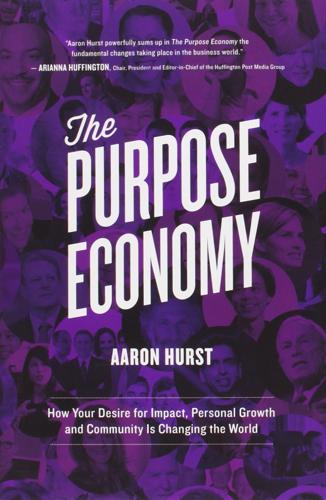
The Purpose Economy: How Your Desire for Impact, Personal Growth and Community Is Changing the World
by
Aaron Hurst
Published 31 Aug 2013
Several states are experimenting with social impact bonds, and others are experimenting with new governance structures to address the financing needs of organizations that don’t neatly fit into commercial or nonprofit categories. Much like technology a few decades ago, purpose has now become a business imperative. In today’s world, running an organization without an intentional emphasis on purpose for employees and customers is like running an organization in the early 1990s and failing to implement technology. Little of this is truly new, of course. Farmers’ markets existed long before chain stores. Social impact bonds appeared in Israel in the midcentury.
…
In a recent article, Fast Company called B Corps the “rockstars of the new economy,” and prominent companies that have gone the B Corp route include Etsy, Warby Parker, Patagonia, and Seventh Generation. The structure must also be approved by state legislatures, and as of this writing, eleven states have done so, from Maryland to Hawaii. New investment models are being pioneered as well. Social impact bonds, as described earlier, are another potentially powerful type of hybrid innovation. An interesting approach to this kind of investment blending is being practiced by the Omidyar Network to early stage social entrepreneurs. They offer grants, in the manner of a foundation, as well as loans or equity investments, for which a return is expected.
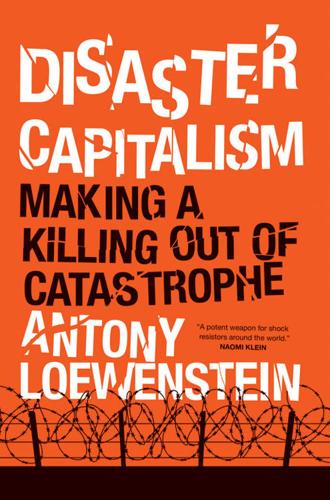
Disaster Capitalism: Making a Killing Out of Catastrophe
by
Antony Loewenstein
Published 1 Sep 2015
The US model of reducing the role of government while increasing the influence of largely private power has never been so rapacious, though the problem is global. For-profit colleges burden students with huge debts and worthless credentials while receiving federal student aid. Goldman Sachs, a firm with a large measure of responsibility for the economic meltdown in 2008, now invests in social-impact bonds—a system that enriches the company if former prisoners stay out of jail but reduces the accountability of governments and prioritizes private profit. The corporation also makes money from higher education, pressuring underprivileged students to take on debt while giving scant attention to the standard of teaching.8 Republicans in Michigan have pushed for the privatization of public school teachers, using a skewed logic that advocates cutting public schools and selling off facilities at the lowest price.
…
Ashraf 42–3 Haiti 26, 105–53, 175, 308 aid 12, 108, 120, 123–8, 144–7, 342n89 aid delivery failure 340n56 aid dependency 121, 126 American colonialism 109–13 American corporate pillaging 111–12 American investment 116–20 American policy 115–16, 116–20, 134 Aristide rule 112–13 beggars 106 Canadian aid 120 Caracol industrial park 116, 128–33, 133–6, 148 challenge facing 152–3 child slaves 145 cholera outbreak 113–16 CIA involvement 110 and the Cold War 111 corruption 141 coup, 2004 112 death toll, cholera outbreak 113 death toll, earthquake 107, 145 debt 127 Duvalier dictatorship 109–12 earnings 117, 132, 144 earthquake, January 2010 12, 107, 117 earthquake, January 2010, aftermath of 105–7 economic exploitation 132, 133–6 economic fragility 109–13 economic resistance 150 eco-system damage 130 effect of neoliberalism on 112–13 exploitation 107–8 foreign investment 116–18, 121–2, 133–6 French aid 120 historical background 109–13 homelessness 107 housing 129–30, 140, 150–1 human rights 110, 116 indigenous development 147–9, 150–2 job creation 131 leadership 119–20 living conditions 105–7, 141–4 mining regulation 120–1 National Palace demolition 137–9 NGO-ization of 137–41 occupation of 127 organisations populaires 112 paramilitary groups 109 political freedom 109 Presidential elections, 2015 140 reconstruction gold rush 107–9 refugee camps 141–4 religious faith 106 resource exploitation 120–1 revolution 109 rice imports 122–3 sovereignty 135, 146, 152 tourism 152 unemployment rate 127 unregulated capitalism 135–6 UN stabilization force 113, 115–16 women in 142–3 workers’ rights 148 Haiti Economic Lift Program 133 Haiti Grassroots Watch 117, 120 Haiti-Liberte 108–9 Halliburton 28 Hallward, Peter 109, 111–12, 152 Hamburg 84, 311 Hammond, Philip 16 Harding, Richard 284 Hardwick, Nick 263–7 Harper, Stephen 120 Harry (Christmas Islander) 272–3 Hastings, Michael 26 Hayatullah (asylum seeker) 301–3, 360n49 Headley, Linden 220–1 health services privatization, United Kingdom 244–5 heart disease 14 Hellenic Broadcasting Corporation 74 Hellenic Foundation for European and Foreign Policy 96 Hellenic Republic Asset Development Fund 101–2 helplessness, feeling of 308–9 Higgins, Greg 128 Hill+Knowlton 25–6 History Channel 306–7 homelessness 107 Honduras 225 Howard, John 275–6, 279 humanitarian relief, NGO-ization of 137–41 humanitarian work, military and 58–9 human rights 123 Afghanistan 42 commodification of 308 disregard for 9 and economic freedom 2 Haiti 110, 116 Human Rights Defense centre 216 Human Rights Watch 47, 48, 67, 71, 196, 200 Human Terrain System 53, 331n67 human trafficking 29, 70 Huppert, Julian 249–51 Hurricane Katrina 26, 118, 124, 337n6 Hurricane Sandy 8 Hyman, Christopher 290 identity, questions of 103–4 immigrants children 212, 225 criminalization 198–9 demonization of 226 deportation 212, 227–8 detention centers 211–28 incarceration rates 195 legal representation 217–18 United Kingdom 243–4 United States of America 198–9, 211–28 see also asylum seekers imperialism, legacy of 10–11 Independent Human Rights Commission, Conflict Mapping in Afghanistan since 1978 32 Independent Timbers and Stevedoring 344n19 IndustriALL 187 inequality 2–4, 56, 242–3, 302–3 information management consultancy 51–6 Innocent, Alix 130–2 Integrity Watch Afghanistan 24 intellectuals, responsibility of 310 intelligence gathering, privatization 51–6 Inter-American Development Bank 123, 130 Interfaith Prison Coalition 216 Interim Haiti Recovery Commission (IHRC) 118 International Criminal Court (ICC) 43 International Health and Medical Services 295 International Monetary Fund (IMF) 4–5, 62, 72, 99, 112, 127 International Organization for Migration 74 International Relief and Development (IRD) 28 International Security Assistance Force (ISAF) 32 interrogators and interrogation, privatization 15 Inter-Services Intelligence 56, 331n73 “Invisible Suffering” (MSF) 75 Iran 23, 49 Iraq 12, 14, 25, 27, 28, 323n33 Islamabad 56, 57 Islamic State (ISIS) 16, 41 Jack (PMC owner) 20–5 Jalalabad 38 Japan 11 Jean, Arnolt 121 Jean, Wyclef 141 job creation 131 John (BCL manager) 160–1, 164–5, 166–7 John (detention center guard) 296–8 Jones, Justin 198 Josephine (teacher, PNG) 183 Josh (PMC contractor) 59–60 journalism, usefulness of 309 J/P Haitian Relief Organization 137–9 JSOC 59 Jubilee 159 Jubilee Australia 190–1 Justice Police Institute (JPI) 201 Justinvil, Pierre 130 Kabul 19, 36 drinking holes 59–62 drug abuse 38–9 population 45 private military companies 19–25 suicide attacks 41 women in 47–8 Kambana, Adrienne Makenda 258–9 Kampagiannis, Thanasis 93–5 Kandahar 55 Karachi 56 Karunakara, Unni 139 Karzai, Ahmed Wali 41 Karzai, Hamid 27, 31–2, 41, 44, 47 Katz, Jonathan 119, 139–40 Kauona, Samuel 161, 178–80, 346n35 Kavo, Havila 186 KBR 28 Keerfa, the Movement United Against Racism and the Fascist Threat 93 Kelleher, Joan 285–6 Keller, Ska 97 Kemish, Ian 189 Kentucky 205, 228 Kerry, John 30, 62 Khalilzad, Zalmay 50 Khan, Muhammad Alamgir 57 Khogyani, Saima 48–50 Khyber News Bureau 58–9 Kilcullen, David 53 Kim Woong-ki 133 Kirra, Bernadine 185 Klein, Naomi 6–8, 11 KOFAVIV 142–3 Koim, Sam 188 Koofi, Maryam 50–1 Korean Peninsula 23 Kosovo 26 Kotsioni, Ioanna 76–7 Krugman, Paul 243 Kuwait 25 labor abuses 29 Laleau, Wilson 116–17 Lamothe, Laurent 120 landowner rights 177 Langdon, Robert 60, 332n82 Lasslett, Kristian 159–60, 161 Lebrun, Jean Robert 148 Lemberg-Pedersen, Martin 96–7 Leonard (teacher, PNG) 181 Lepani, Charles 189 Libby Sacer Foundation 103–4 Libya 16, 30 Limits to Growth, The (Randers) 1–2 Lloyds Banking Group 16 lobbying 124 Lockheed Martin 31 Logan, Steve 198–9 London, Becket House 263 Louisiana 200 Lucke, Lewis 108–9 Lujan, Nathan K. 306–7 Lumpkin, Georgia, USA 222–3 Stewart immigration detention center 211–22 McDowall, Paul 252 McDowell, Janine 252 McFate, Sean 16 McGregor-Smith, Ruby 242, 245–9 McKibben, Bill 8–9 McLean, Murray 11 Malmström, Cecilia 98 Management and Training Corp 218–19 Management Today 242 Manjoo, Rashida 252 Manus Island 276–7, 280, 281, 282–3, 297, 357n11 market principles, application of 14–15 market system 2 Marr, David 282 Martelly, Michel 106, 110, 116, 117, 140, 339n34 Mason, Paul 73, 267 MASS Design Group 114–15 Matheson, Scott 299 Maywood, California 5 Médecins de Monde (MdM) 77–80 Médecins Sans Frontières (MSF) 75–7, 114, 183 media outlets, ownership of 5 Medical Association of Athens 84 medical care asylum seekers 77–80, 78–80, 256–8 detention centers 77–80, 266, 295 Germany 84 Greece 80–4 prisons 205, 209, 214–15, 215–16 Medical Justice 256–8, 260 Medina, Roberto Martinez 218 Meek, James 234, 239 Mehmood, Tahir, death of 241 mental health 254–5, 285, 286, 295, 302 mentally disturbed people, incarceration rates of 201 mercenaries 20, 59 Merkel, Angela 73 Merten, Kenneth 107–8, 339n34 Metropolitan Community Clinic, Athens 80–4 Michael (asylum seeker) 230–2 Migration Policy Institute (MPI) 212 MiHomecare 255 military ideology 15 Miller, Phil 263 “Mining for Development” initiative, Australia 190 Ministry of Public Order and Citizen Protection, Greece 76 MINUSTAH 113, 115–16 Mitie 242, 245–9, 255 Mlotshwa, Emma 255–8 Moise, Rosembert 150 Momis, John 159, 161, 169 Monaghan, Karon 260 Monbiot, George 9, 236 Money Morning 49 Monsanto 267 Moradian, Davood 44–6 Morales, Evo 125 Morales, Pablo 107 Morauta, Mekere 188 Morrison, Scott 279–80 Mortime, Antonal 140 Morumbi 346n33 MSS Security 296–8 Mubenga, Jimmy, killing of 258–60 Mudd, Gavin 185 Mundell, Robert 84 Munnings, Kate 358n25 murders, private military companies 15, 46, 57, 60, 323–4n40 Murdoch, Rupert 5, 41, 359n30 Musharraf, Pervez 57 MWH Americas 124 Nader, Ralph 173 Namaliu, Sir Rabbie 160, 343n6 Namorong, Martyn 190 Nashville, Tennessee 209 Nathan (PNG resident) 167–8 National Audit Office 236 National Health Service 244–5 National Institute of Money in State Politics 201 National Research Council 198 nation building 23 Nation (magazine) 118 Nation (newspaper) 57 NATO 32, 55, 63 Nauru 275–6, 276, 276–7, 280–1, 283, 296 Needham, Emma 299 neo-colonization 190 neoliberalism 83, 112–13 New Economics Foundation 243 Newmont Mining 120 News Corporation 5 New York Times 8, 38, 101, 113, 115, 118, 131, 141, 199, 212, 226, 243, 284, 340n56 New Zealand 361n51 New Zealand Aid Programme 158–9 Nicaragua 134 Nicholls, Adelina 224–6 No Logo (Klein) 7–8 non-government organizations, and humanitarian relief 137–41 North American Free Trade Agreement 225 Northrop Grumman 35 Norway 2, 186–7 Obama, Barack 3, 31, 35, 45, 118, 124, 149, 195, 212, 221–2, 224 obesity 14 Occupy movement 5–6, 309 Occupy Wall Street 3 O’Faircheallaigh, Ciaran 162 Office for the Coordination of Humanitarian Affairs, United Nations 139 O’Grady, Mary Anastasia 134 Ohio 197–8 oil prices 166 Ona, Francis 169, 178 O’Neill, Peter 159, 166, 171, 186, 188, 347n50 One World 117 Operation Enduring Freedom 31 organisations populaires, Haiti 112 Organization for Economic Cooperation and Development 6, 267 outsourcing 28–30 outsourcing contractors, United Kingdom 240–2 overcharging 29 overconsumption 8 Oxfam 191, 242–3 Pakistan 12, 56–9, 62 community mapping 58 Federally Administrated Tribal Areas 58 feeling of occupation 59 private military companies 56, 57 state absence 56–7 Taliban in 31 US army action 58 Palast, Greg 84 Panagiotaros, Ilias 91–3 Panguna Landowners’ Association 177 Panguna mine, Papua New Guinea 154–64, 164–5, 167, 168, 177–8, 181, 182, 184–6, 191–2 Panguna town, Papua New Guinea 165–7 Papua New Guinea 11–12, 12, 117, 154–92 agricultural exports 174 aid 13, 167, 171–5, 179 and America 170–1 and Australia 154, 160, 163, 167, 169–75, 176–7, 188, 188–91 Australian exploitation of 169–75 Australian goals 172 Australian government aid 158–9, 171–5, 179, 182, 189–91 Autonomous Bougainville Government 161, 167, 178–80, 184, 346n33 average age 158 baby boom 157 BCL legacy 160–1 Bougainville mining legislation 161 and China 170 civil disturbances 175 civil war 154–5, 158–9, 161, 163–4, 178–80, 180–2, 187 constitutional planning committee 169 corruption 170, 171, 188 desire for independence 176–8 education 158, 166–7, 167–8 environmental destruction 157–8 foreign investment 186–7 forest 336n19 gold panning 164 Grasberg mine 187 independence 169–70 lack of change 167–9 life expectancy 175 maternal mortality rate 183 mining boom 13, 156, 169–76, 184–91, 344n50 mining waste 157 officials’ role 175–6 Ok Tedi Mine 157–8, 173, 188, 345n23 opposition to mining 168–9, 174, 178–80 Panguna Landowners’ Association 177 Panguna mine 154–64, 164–5, 167, 168, 177–8, 181, 182, 184–6, 191–2 Panguna reserves 186 Panguna town 165–7 pollution 157, 164, 173 poverty 175 private military companies 180 Ramu nickel mine 174 reconciliation meeting, February 2013 158–9 resource exploitation 120, 154–64, 176, 184–91, 344n19, 346n33 the Sandline controversy 180 sovereign fund 188 sovereignty 156, 175–6, 176–8, 191, 192 Task Force Sweep 188 weapons decommissioning 181–2 women in 182–4 World War II 170 Papua New Guinea Sustainable Development Program (PNGSDP) 345n23 Partners in Health 113–14 Partners Worldwide 136 Pay Any Price (Risen) 11 Peace and Security Project 98 peace building 54–5 Peck, Raoul 118–19 Penn, Sean 137–9 Pennsylvania 209 Pentagon, the, waste 34–5 people-smugglers 70, 287 Peshawar 57–9 Peter (PMC contractor) 59–60 Petraeus, David 52–3 Piketty, Thomas, Capital in the Twenty-First Century 6 Pilger, John 10, 245 Pindar, Paul 241–2 Pipiro, Moses 184 Pita, Aaron 181–2 Platform of Haitian Human Rights Organizations 140 Podur, Justin 115, 147 police militarized 203, 238 privatization 240 surveillance 6 police brutality Greece 83 United States of America 203 pollution, Papua New Guinea 157, 164, 173 Port-au-Prince 105–7, 107, 116, 118, 127, 128, 146, 149–50, 150–1 Port Moresby 166 poverty 98–9, 175 PPSS 206 predatory capitalism 11, 13–14, 162, 310–11 press freedom 74, 75 price-gouging 292 Prince, Erik 16 prisons and the prison industry 197, 202–11 abuse 216–17, 218 access 219 American Correctional Association (ACA) conference, 2014 202–11 bed mandate 226–7 children in 208 emotional impact of incarceration 207–8 employee wages 223 exploitation 227 failure of private 200–1 female population 197 food 215 green technology 204 incarceration rates 195–6, 200, 201, 204 inmate labor 205–6, 211, 213 lack of oversight 216, 228–9 lack of transparency 225–6 medical care 205, 209, 214–15, 215–16 money saving 217 occupancy quotas 226–7, 228 opposition to private 223–8 overcrowding 196 phone call costs 214 prisoner costs 200–1 privacy 208–9 private operators 196–8 privatization 13, 195–229, 240, 264–5 profits 197, 201–2 Scandinavian 208–9 solitary confinement 208, 209, 218–19 state oversight 205 Stewart immigration detention center, Lumpkin, Georgia, USA 211–22 suicide rate 209, 217 United Kingdom 240, 264–5 uprisings 208–9 visit 211–22 private military companies 12 accountability 16 Afghanistan 19–25, 33–5, 41–3, 44, 46–8, 50, 59–62, 331n69 Australian contractors 60 casualties 32, 326n27 clients 20–1 connection between 23–4 contractor motivations 59–62 employees 22, 47, 57 exploitation by 22 fees 21 future 23 hiring practices 61 influence 41–2 justifications 22–3 killings 46, 57, 60, 61 lack of state control 34, 47 locals view of 46–8 motivation 23 murders 15, 46, 57, 60, 323–4n40 and nation building 23 need for 21 numbers 20 origins 33 Pakistan 56, 57 Papua New Guinea 180 problem of 42 recruits 20 regulations 21, 22 and sovereignty 22–3 static work 21–2 transparency 34 weapons 20, 21 private power 4, 9 private security contractors, motivations 59–62 privatization asylum seeker detention network 77 Australia 361n51 border controls 241 contractor privacy 248–9 costs 236 detention centers 13, 98, 230–5, 245–51, 280–5, 289–99 disaster relief 108–9 economic logic of 289–99 failure of 239 Golden Dawn and 92–3 Greece 72, 98, 100–2, 307–8 and the IMF 4–5 intelligence gathering 51–6 justification 238–9, 245–6 Klein’s critique of 6–7 opposition to 100, 101, 102–3, 251 overcharging 240–1 prisons 13, 195–229, 240, 264–5 public services 230–68 as recent history 311 resistance to 7 revolving door 197 scale in UK 244 school teachers 4 surveillance 15 tender process 289–90 transparency 246, 290–1 United Kingdom 230–68, 310 of war 7 and waste reduction 30 profit, and poverty-level wages 117 prostitution 102 Psarras, Dimitris 85–7, 93 public services, privatization 230–68 Public Service Strategy Board 245–6 punishment, outsourcing 264–5 Putin, Vladimir 90, 93 racism 80, 259–60, 294 Raleigh, Jeff 26 Ramsbotham, David 260–1 Randers, Jørgen, The Limits to Growth 1–2 rape 47, 142–3, 183 Rau, Cornelia 289 Reagan, Ronald 238 Red Cross 342n89 refugee camps, Haiti 141–4 refugee crisis, Europe 95–8 refugees see asylum seekers Regan, Tony 159, 161 Rendon Group 26 Rene, George Andy 136 Reporters Without Borders 74 resource curse 13 resource exploitation accountability 180 Afghanistan 24, 49–50 Christmas Island 274 as entertainment 306–7 Haiti 120–1 impact 164–5, 166–7, 168 landowner rights 177 opposition to 178–80 Papua New Guinea 120, 154–64, 176, 184–91, 344n19, 346n33 regulation 120–1 responsibility 161 toxic dilemma of 162 and violence 159–60, 163–4, 167–8 “Restore Haiti” conference 136 Rhiannon, Lee 50 Rice, Susan 116 Rio Tinto 154, 157, 159, 162, 180, 186–8, 189 Risen, James, Pay Any Price 11 Roches, James Des 33 Roka, Theonila 159 Rolling Stone 41 Rompos, Antonios 78–80 Rooney, Nahau 281 Roupakias, Giorgos 90 Royal Mail 236 Roy, Arundhati 5–6, 307–8 Rubio, Marco 228 Rudd, Kevin 289, 290 Rumsfeld, Donald 26, 29–30 Saddam Hussein 25 Sae-A 130, 131, 132, 134, 135, 148 SAIC 31 Sally (case manager) 300–1, 303–4 Samaras, Antonis 94–5 Sanderson, Janet A. 115 Sandline 180 Sanon, Reyneld 150–1 Sarantou, Elina 66–7 Sarobi 38 Sassen, Saskia 99 Sassine, George 134–6 Sathi (asylum seeker) 253–4 Scahill, Jeremy 15 Scarperia, Annette 206 Schäuble, Wolfgang 75 Schofield, Josh 206 Schuller, Mark 107 Schumer, Chuck 228 Schwartz, Timothy 144–7, 342n92 Schweich, Thomas 38 Sean (Serco source) 292–4 Security and Management Services 57 security, outsourcing see private military companies Sediqqi, Sediq 41–2 sentencing reform, United States of America 198 September 11 terrorist attacks, 2001 7, 33 Serco 13, 232, 235, 240, 248, 252, 264, 270, 271, 277, 278, 279, 280, 282, 284, 289–99, 359n30 Shah, Rajiv 123 Shahshahani, Azadeh 226–7 Shah, Silky 222, 227–8 Sharon (detention center worker) 298 Sheffield 230–5, 262 Shell 186 Shield Defence Systems 204 shock doctors 8 Shock Doctrine: The Rise of Disaster Capitalism (Klein) 6–7, 11 Sideris, Christos 80–4 Simon (teacher) 272 Singer, P. W. 33, 34 Sisalem, Aladdin 281 al-Sisi, Abdel Fattah 2 Smart Borders 97 Smart, Frank 209 Smeets, Alice 137 Snowden, Edward 15, 55, 219, 359n32 social-impact bonds 4 social media 75 social sensitivity 21 social spending, cuts 6–7 Solnit, Rebecca 311 Solomon Islands 176, 346n28 Solon, Vivian Alvarez 289 Somalia 26 Somare, Michael 170, 171, 191 Sonapi 131 Sontag, Deborah 113 Sopko, John 62 South Africa 196 Southern Center for Human Rights 199 South Korea 117 South Sudan 14 South Yorkshire Migration Asylum Action Group 235 sovereignty Greece 104 Haiti 135, 146, 152 Papua New Guinea 156, 175–6, 176–8, 191, 192 and private military companies 22–3 Soviet Union 33, 37 Spaccia, Angela 5 Special Inspector General for Afghanistan Reconstruction 35 Spicer, Tim 33, 180 Sri Lanka, Boxing Day tsunami, 2004 11 Stathis, Epaminondas N. 87–91 Stavridis, Stelios 102 Stewart Immigration Detention Center, Lumpkin, Georgia 211–22 Stillman, Sarah 29 Sturm, Axel 185–6 suicide attacks 41–2 suicide rates 102, 209, 217, 332n83 Supreme Foodservice AG 29 surveillance 6, 15, 237–8 sustainable development 2, 162 sweatshops 149, 341n65 Syntagma Square protest, 2014, Greece 70 Syria 14 Syriza 12, 72–5, 83, 91, 95, 103 Taibbi, Matt 3–4, 309–10 Takaung, Philip 179 Taliban barbarism 25 drug trade 37 fear of resurgent 44–5 fractured 63 overthrow 31 in Pakistan 31 suicide attacks 41 targeting 55 and women 47, 330n59 Tapakau, Patricia 183–4 Task Force 377 331n69 taxation, global 6 Taylor, Peter 185, 186 Tepper Aviation 34 terrorism, September 11 terrorist attacks, 2001 7, 33 Tethys Petroleum 50 Texas 197 Tex-Net 206 Thatcher, Margaret 234, 238–9, 310 Thehan (asylum seeker) 253–4 Theonil (PNG resident) 167–9 This Changes Everything: Capitalism vs. the Climate (Klein) 8 Thomas, Jean-Louis Saint 131 Thomson, Gordon 273–4, 275 Thorburn, James 232 three-strike laws 198 Tiefer, Charles 35 Time Warner 5 torture 15 tourism 152 Trans-Afghanistan pipeline 25 Transfield 283, 358n25 transparency 10, 191, 249, 310 prisons 225–6 private military companies 34 privatization 246, 290–1 Treatment Advocacy centre 201 Tribelnig, Stuart 259 Triple Canopy 108 Tsiolkas, Christos 103–4 Tsipras, Alexis 72, 73–4, 74, 93, 95 Tuckey, Wilson 278 Tunisia 128 Twitter 308 Tzanetea, Revekka 78–80 UK Border Agency 241 Unilever 267 Union of Christmas Island Workers (UCIW) 273, 275 United Kingdom and Afghanistan 49–50 asylum seekers 230–5, 244, 245–51, 252–8, 258–63 contractor privacy 248–9 deportations 258–63 detention centers 230–5, 245–51, 252–8, 263–7 elite salaries 239 health services privatization 244–5 housing demand 234 immigration policy 243–4 inequality 242–3 Liberal Democrats 252 living standards 243 opposition to privatization 251 outsourcing contractors 240–2 prisons 240, 264–5 privatization 13, 230–68, 237–9, 310 racism 259–60 rent increases 4 scale of privatization 244 slumification 234 Welfare to Work program 261–2 United Nations 16, 68, 126, 277 and Haitian cholera outbreak 113–14, 115–16 Office for the Coordination of Humanitarian Affairs 139 Reducing Emissions from Deforestation and Forest Degradation in Developing Countries policy 344n19 United Nations Environment Programme 157 United Nations Office on Drugs and Crime 37 United States of America Afghan dependence on 45 aid contracts 123–5 American Correctional Association (ACA) conference, 2014 202–11 arms sales 110–11 Assessing Progress in Haiti Act 124 Commission on Wartime Contracting 34 corporate pillaging of Haiti 111–12 cost of Afghan war 45 Defense Logistics Agency 29 deportations 212, 227–8 detention centers 211–28 executions 199 farm subsidies 122–3 female prison population 197 food assistance 3 foreign policy 5, 152 Government Accountability Office 35 Haiti colonialism 109–13 Haiti Economic Lift Program 133 Haiti policy 115–16, 116–20, 134 immigrants 195, 196, 198–9, 211–28 incarceration rates 195–6, 200, 204 inequality 2–4 investment in Haiti 116–20 military bases 28 obsession with imprisonment 198 opposition to private prisons 223–8 and Papua New Guinea 170–1 police brutality 203 prison bed mandate 226–7 prison population 196, 204, 228 prison quotas 226–7, 228 prisons 195–229 private prison operators 196–8 privatization 4, 5, 13 the Reagan Revolution 3 rice exports 122–3 riots, Ferguson, Missouri 203 role of government 4 sentencing reform 198 southern border 212 three-strike laws 198 Urban Shield conference 203–4 use of contractors 28–31 waste reduction 30 youth detention 208 Unocal 25 unregulated capitalism, Haiti 135–6 Urban Shield conference 203–4 URS 172 USAID 28, 38, 108, 123–5, 130, 134, 135, 142, 146–7, 152, 327–8n46, 331–2n77 US Department of Defense 28, 30 US Geological Society 49 US–Korea Free Trade Agreement 133 US special forces 55 U.S.
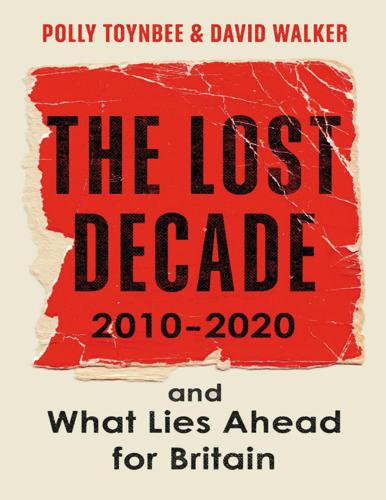
The Lost Decade: 2010–2020, and What Lies Ahead for Britain
by
Polly Toynbee
and
David Walker
Published 3 Mar 2020
Unusually for a public servant in this era, Stacey had the guts to come out and say it: probation wasn’t suitable for outsourcing. Public ownership has to be the safer option. Eventually, the Grayling scheme was scrapped, leaving the shards of an essential public service scattered across the land. Big talk was heard about ‘social impact bonds’, through which private investors would receive a return on their investment in prisons and probation. Despite Whitehall obfuscation, they were exposed as a con, and pilot projects in Doncaster and Peterborough fell through. Prison itself got worse. Inmate numbers rose, fuelled by offenders serving short sentences – magistrates preferred them to Grayling’s probation regime.
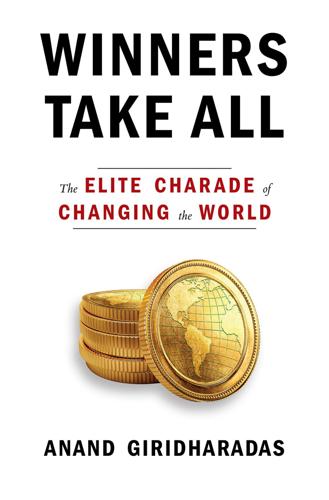
Winners Take All: The Elite Charade of Changing the World
by
Anand Giridharadas
Published 27 Aug 2018
Doing so, its promotional materials said, was “one of the most important means to reducing inequality and ensuring more shared economic growth”—goals for which Goldman was otherwise not well known. While Cohen was a summer analyst there, Goldman had also been involved in an experimental (and ultimately doomed) $10 million investment in a prison program in New York. Under the terms of a new financial instrument called a “social impact bond,” it would profit if its investee, a prison education program, dramatically cut the recidivism rate. Despite such efforts to win over people of Cohen’s bent, a summer at Goldman revealed it to be not for her. It was a little far toward the “doing well” end of the “doing well by doing good” continuum.
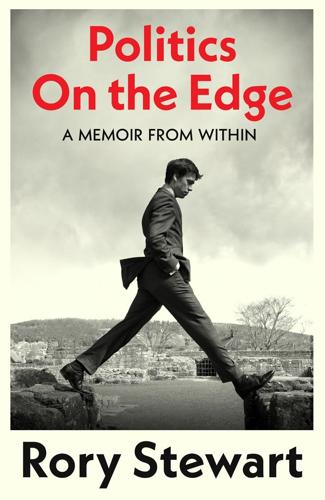
Politics on the Edge: The Instant #1 Sunday Times Bestseller From the Host of Hit Podcast the Rest Is Politics
by
Rory Stewart
Published 13 Sep 2023
He had privatised half the Probation Service, and issued contracts to private sector companies and charities, who promised to be innovative and apply the latest evidence-based approaches to managing former prisoners. In order to focus their minds he promised that the government would pay them hundreds of millions of pounds if they reduced reoffending rates. And fine them if they allowed reoffending to increase. Grayling set very few rules on how they should deliver on this version of a ‘social impact bond’, since he felt the incentives and the results were all that was required. On paper this seemed radical and even plausible. Charities and businesses, freed of government constraints, had been given a strong financial incentive to innovate and tap the best global practice in reducing reoffending: protecting the public; transforming lives; and saving the vast sums of money spent on incarceration.
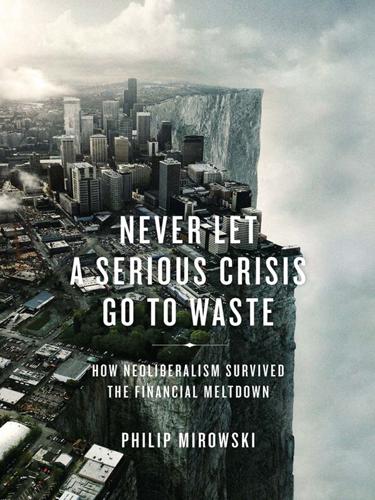
Never Let a Serious Crisis Go to Waste: How Neoliberalism Survived the Financial Meltdown
by
Philip Mirowski
Published 24 Jun 2013
Some say the working-class “democratization” was just feedstock so that Wall Street and the City could securitize ever-expanding volumes of debt (while getting it graded AAA and foisting it off onto gullible money-market funds) as inadequate compensation for the dismantling of the welfare state; but people like Shiller say that the poverty and inequality could actually be mitigated by further financial engineering. The detailed examples provided in above turn out to be a little underwhelming, such as a “social impact bond” that pays a return if a particular social goal is met, or crowdfunding of public investment projects. But, just as with geoengineering, the nitty-gritty specifics are secondary: what really matters is that we learn to outsource our biggest social problems to entrepreneurs, who are the only people capable of using the market to discover really big solutions.